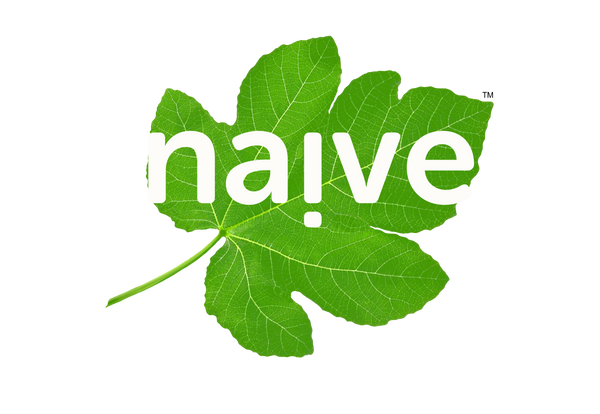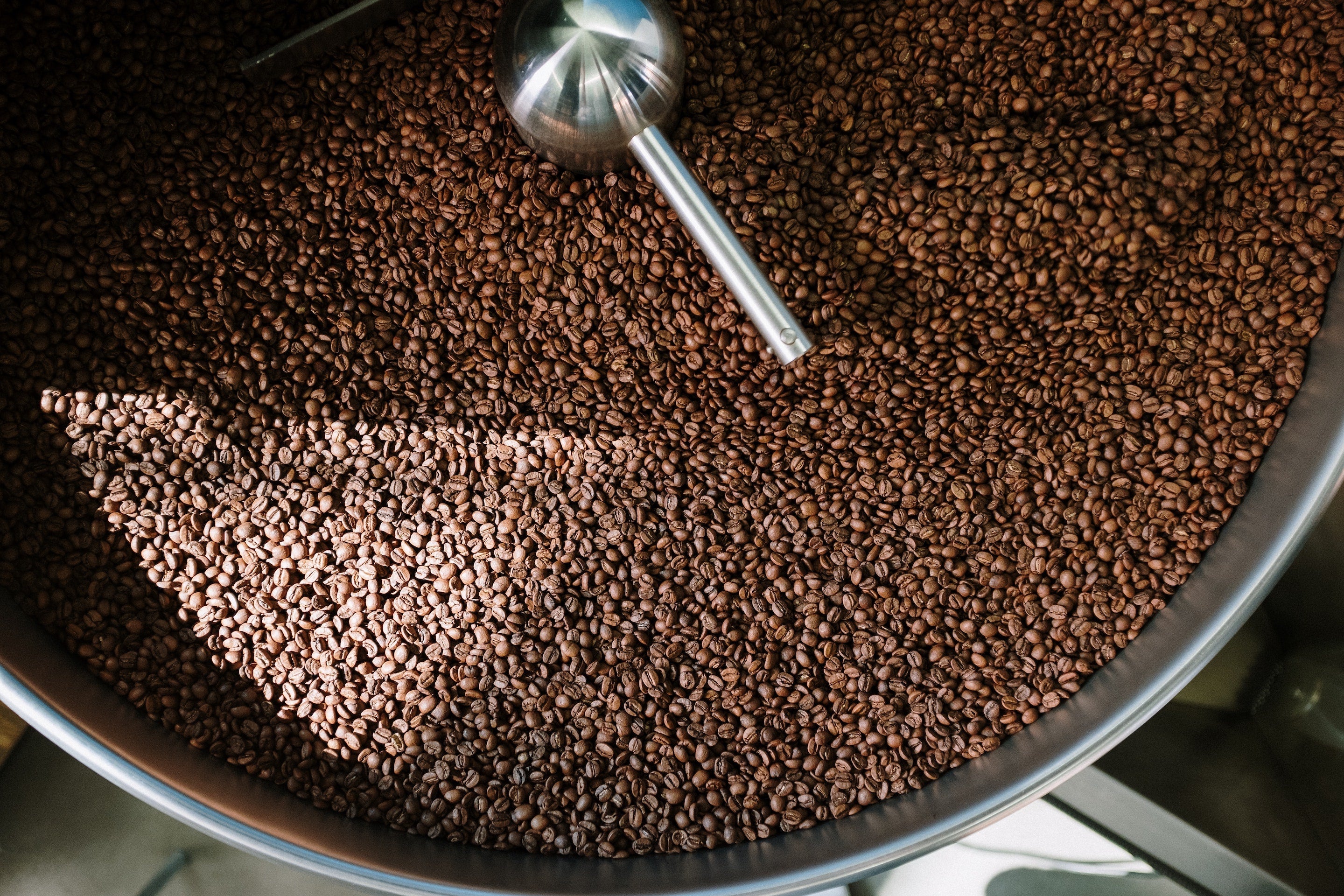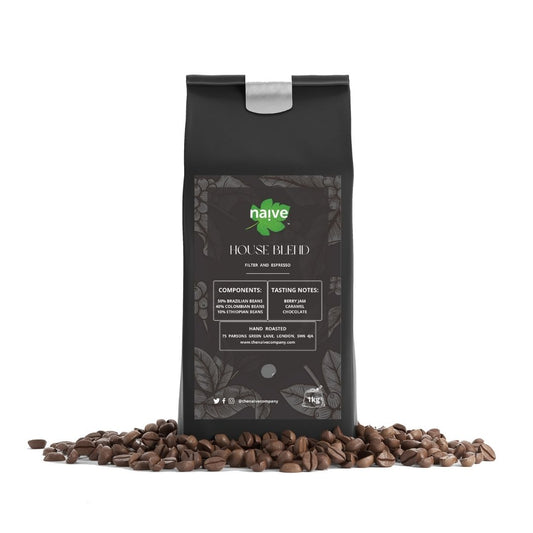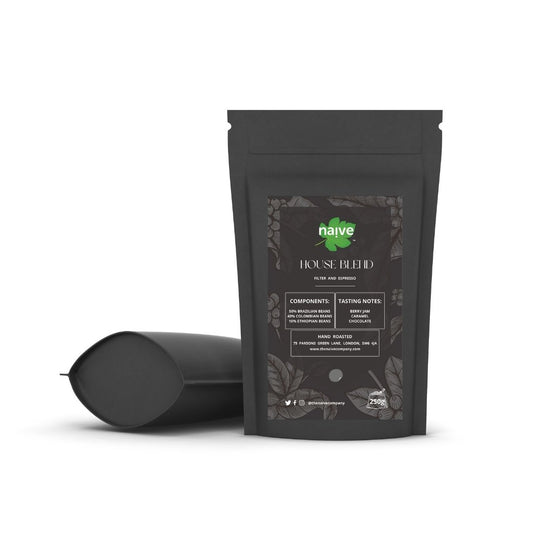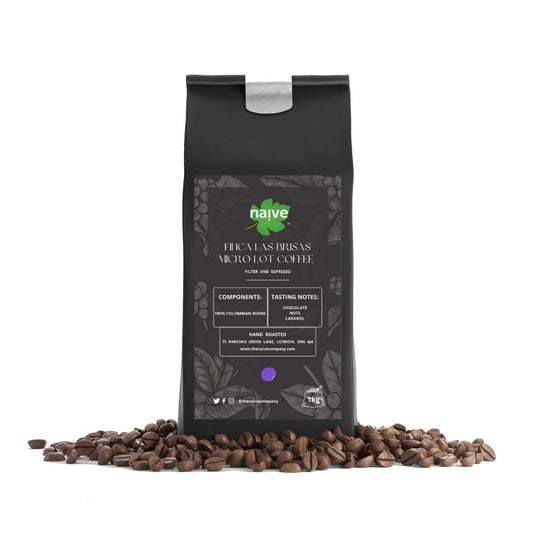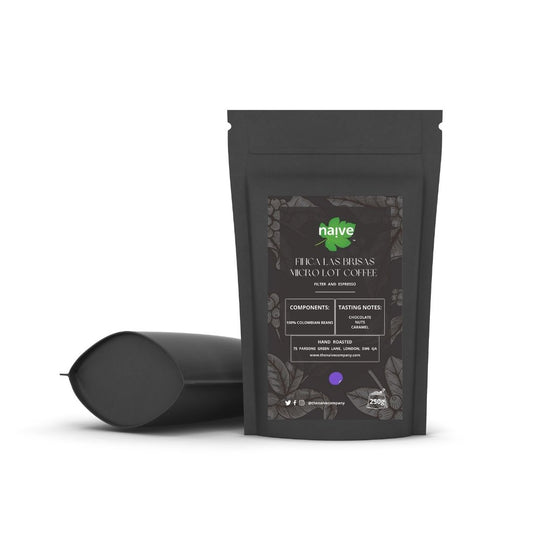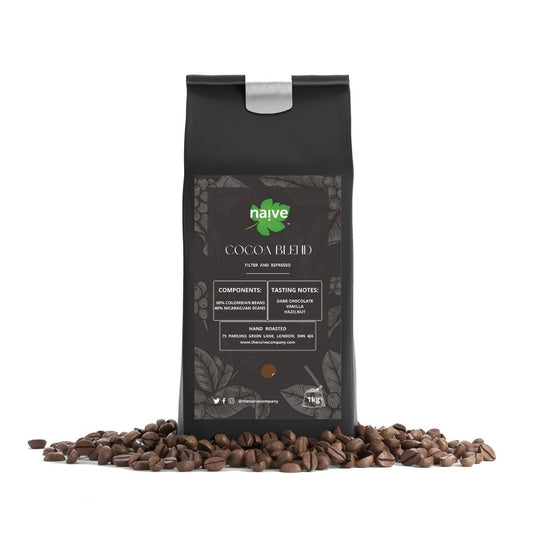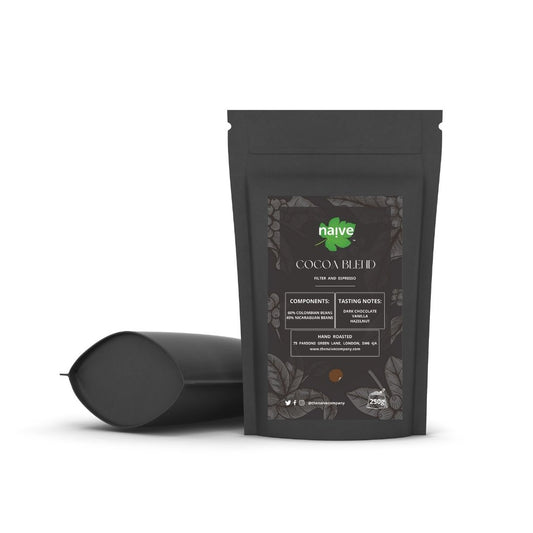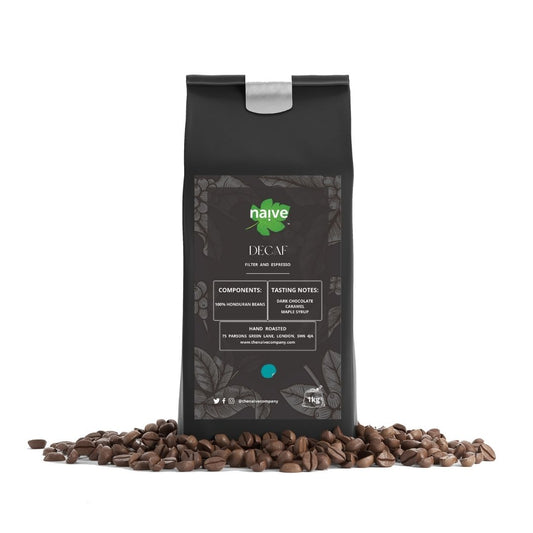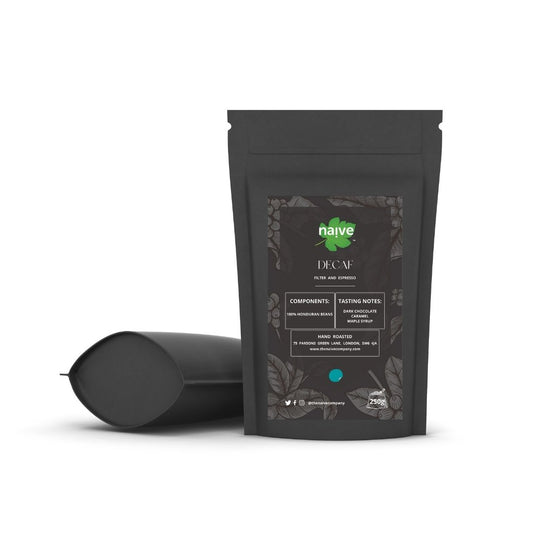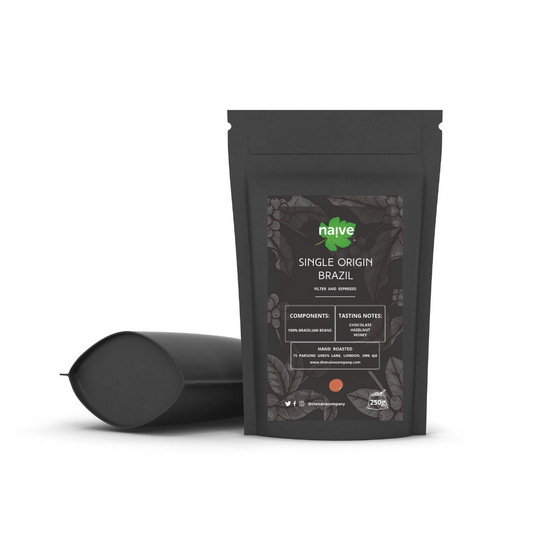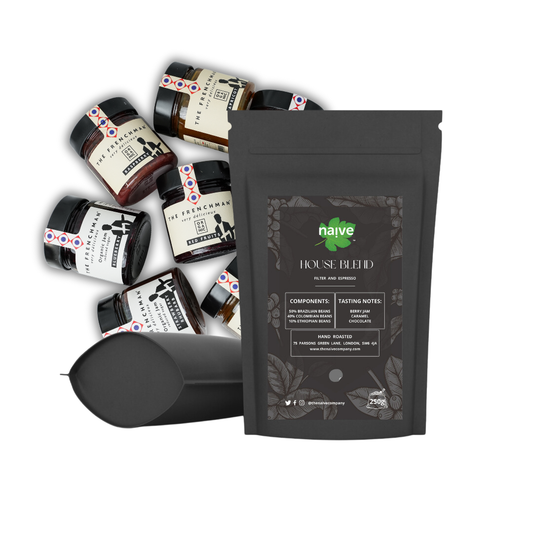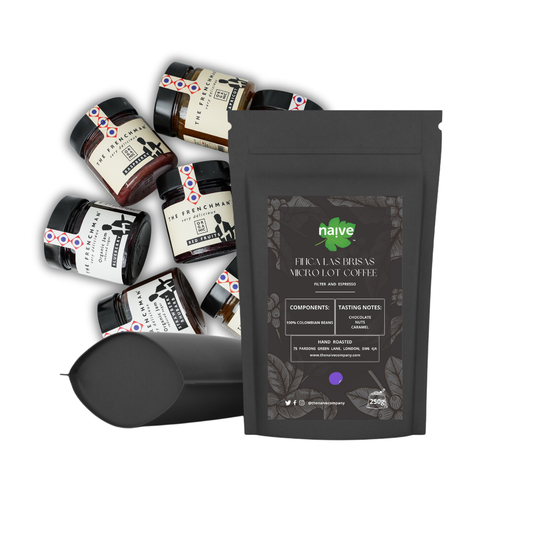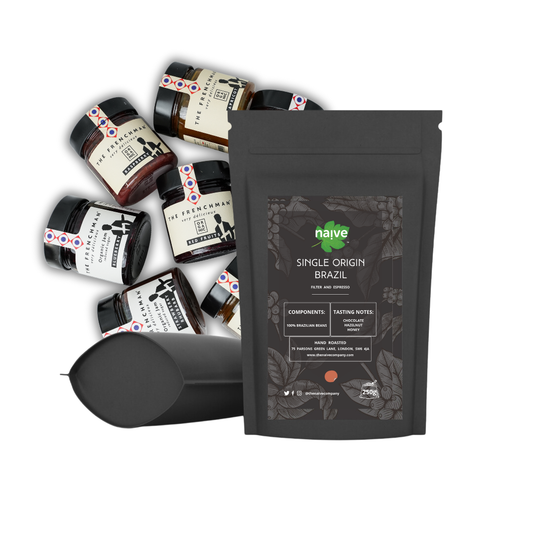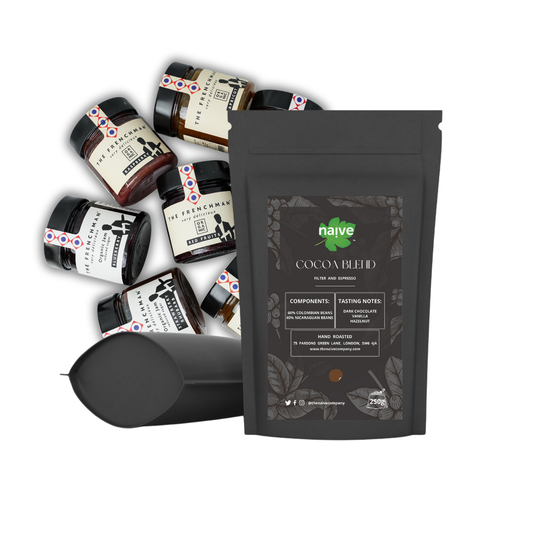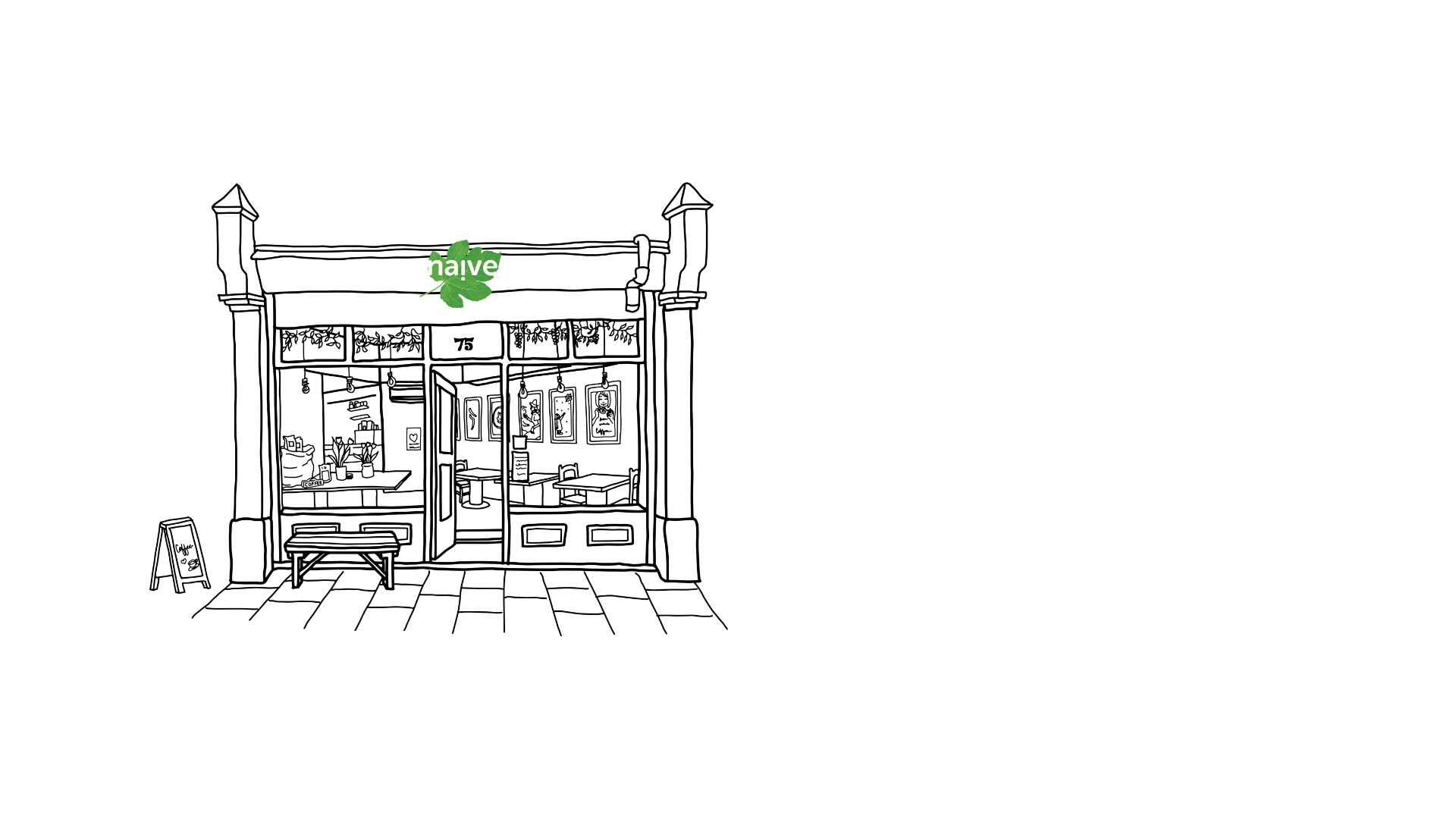Welcome to Naive!
Our beans are sourced from the world's finest coffee-growing regions, ensuring a journey of flavors that tantalize your taste buds.

Introducing
Naive x The Frenchman Jam Bundle
Save £3 when you buy the bundle!
-
We’ve teamed up with The Frenchman Jam, creators of vibrant, fruit-forward jams crafted by fourth-generation artisans with respect for people and planet. Pair that with Naive’s globally sourced specialty coffee and you get a collaboration built on flavour harmony.
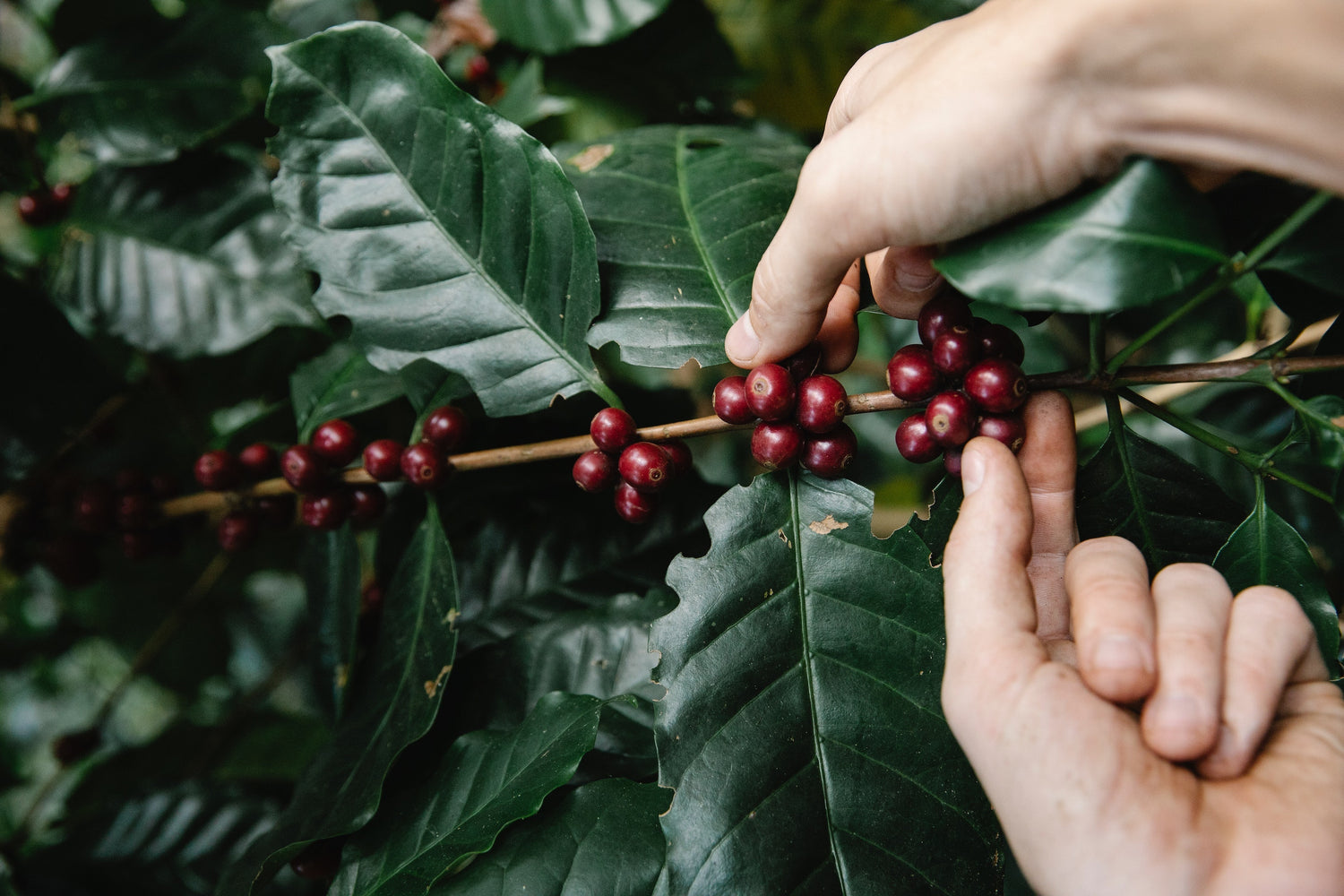
We Care.
At Naive we buy our produce directly from the farmer and even see their growing and harvesting methods first hand.
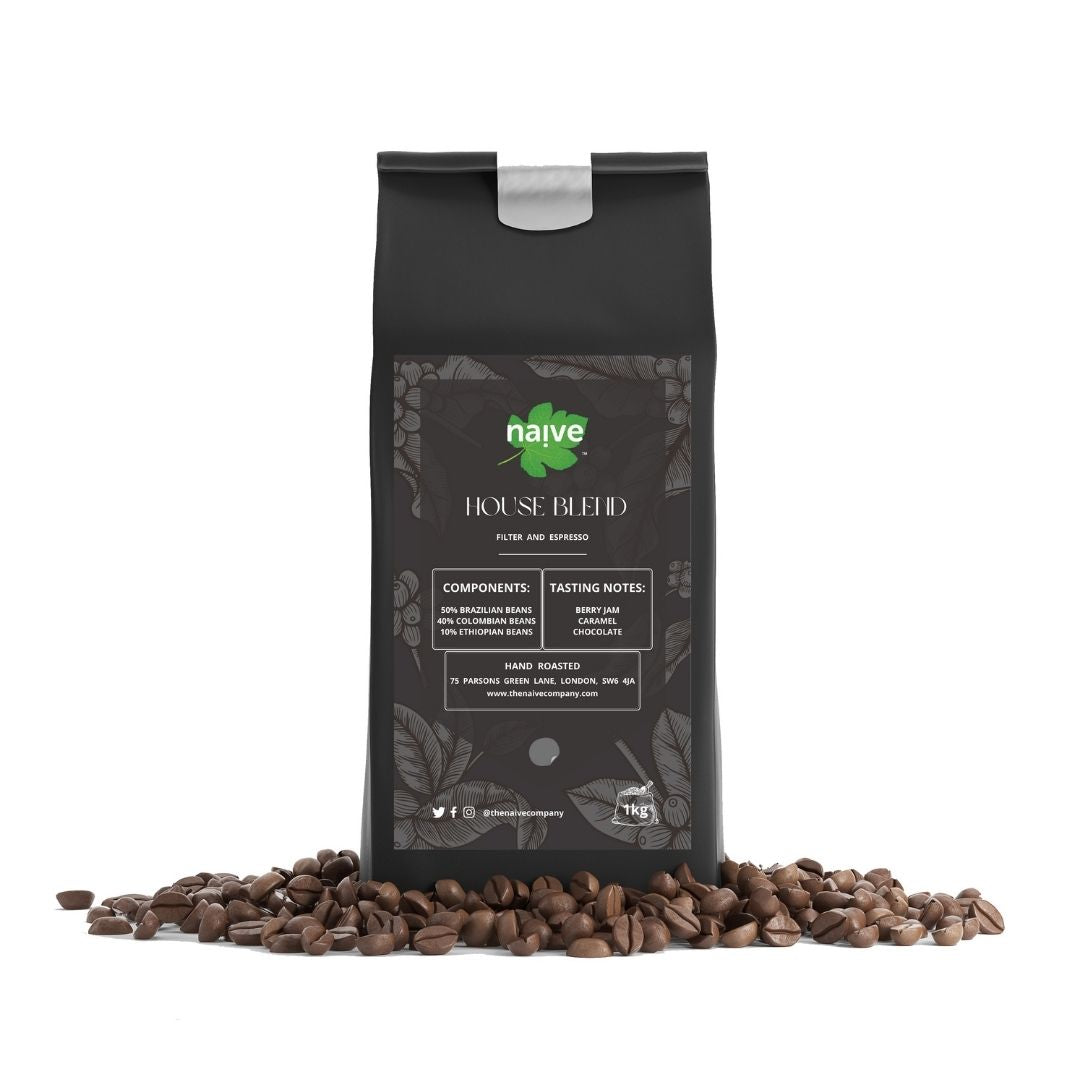
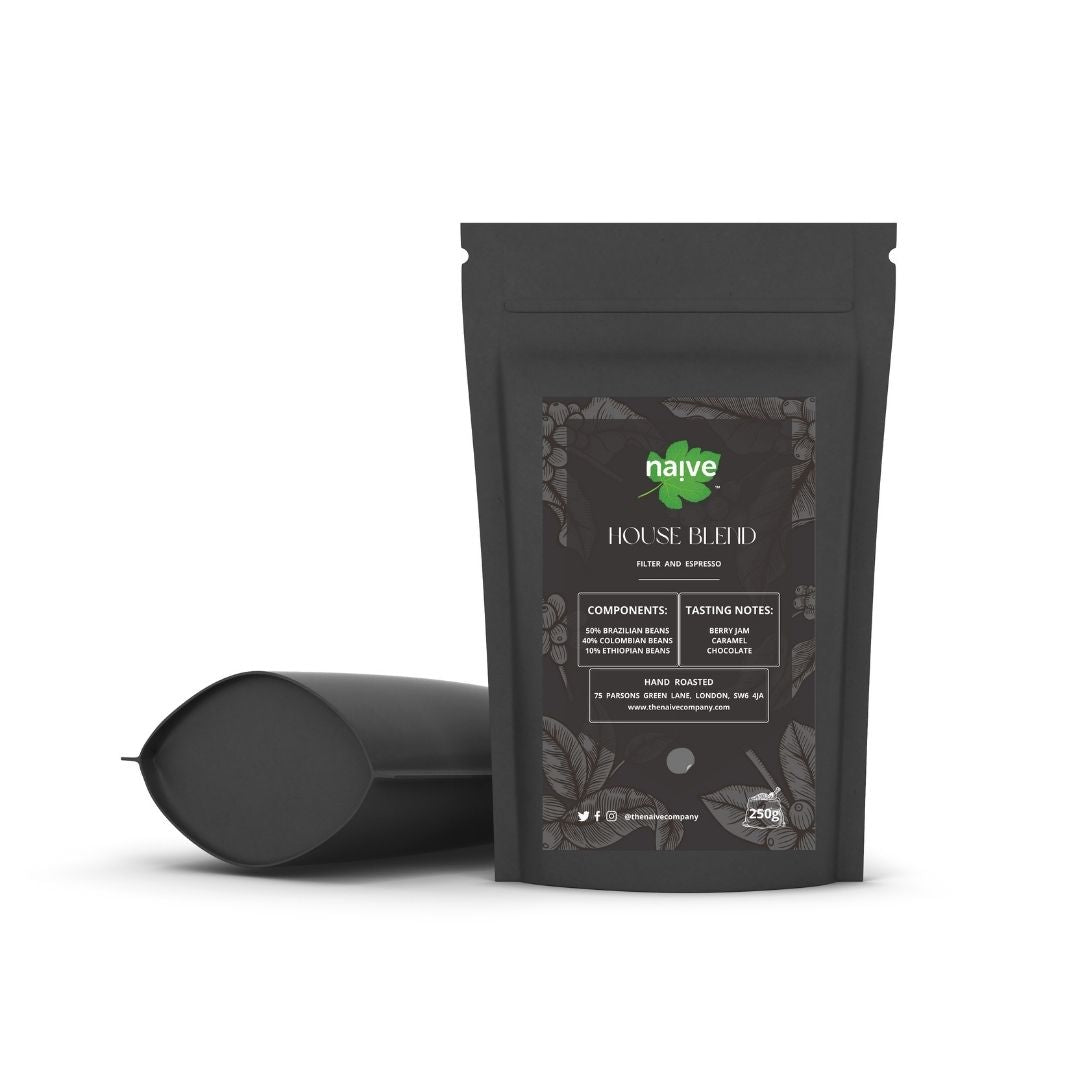
OUR BEST SELLER
House Blend Coffee
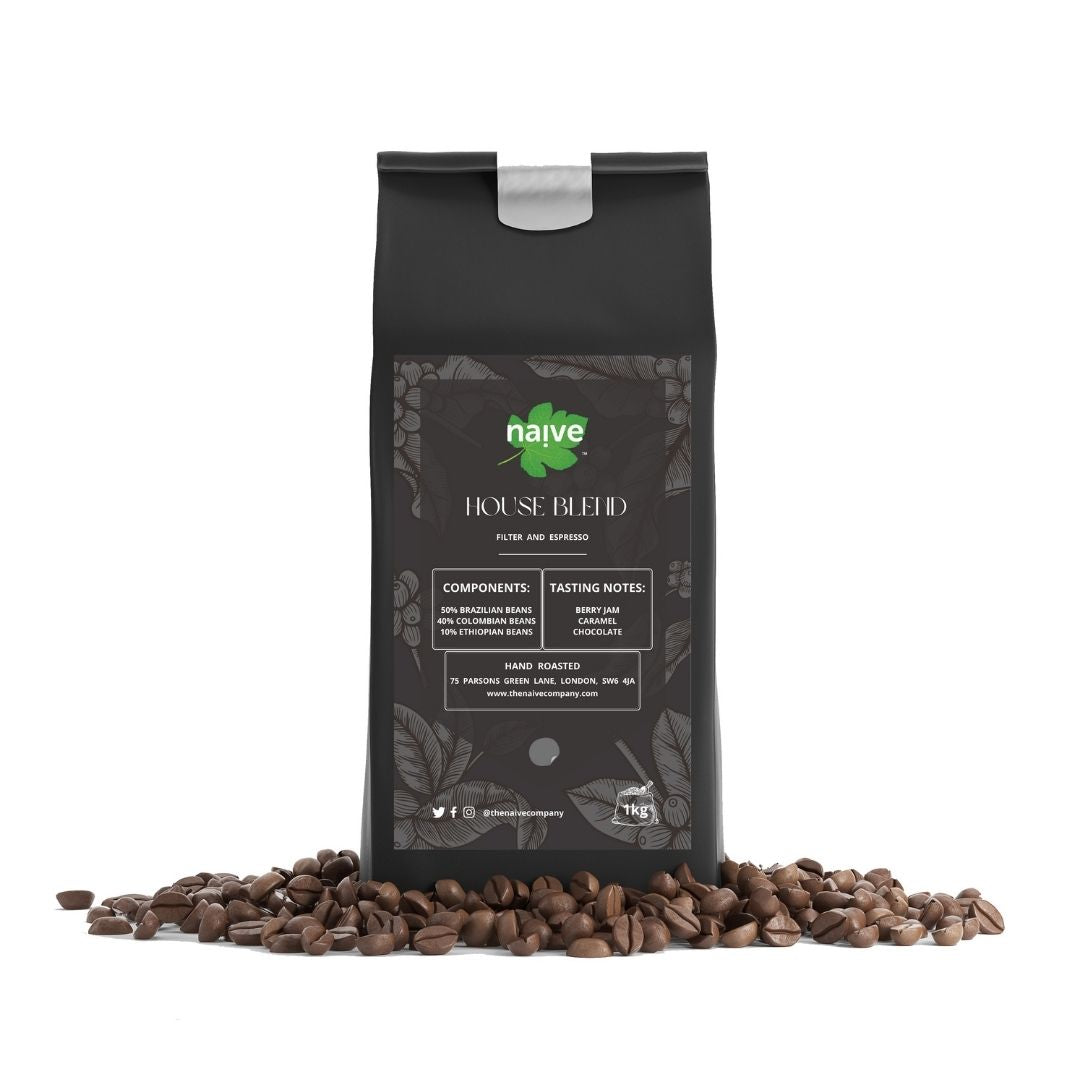
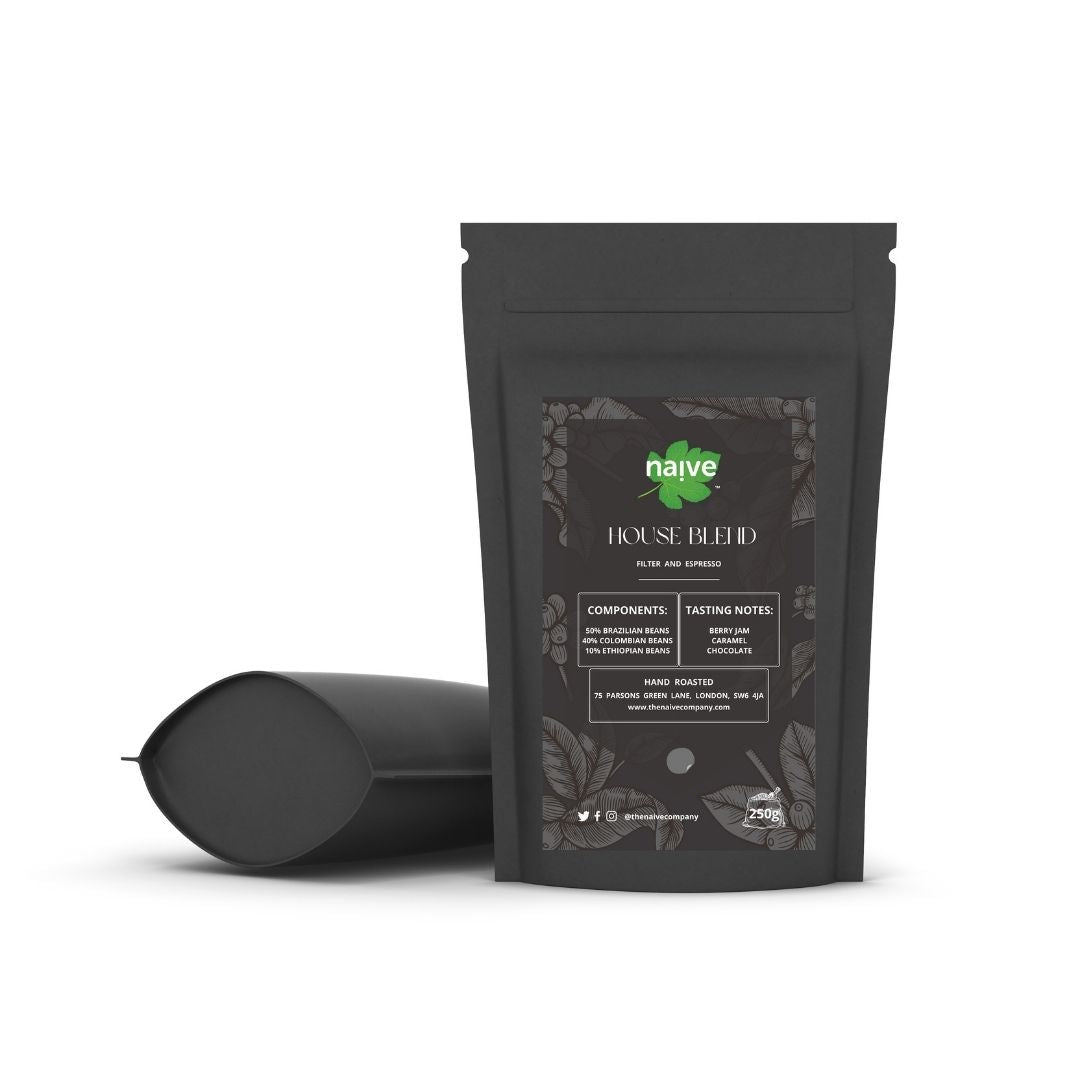
a great coffee is all about balance, between aspects of acidity, bitterness and the quality of the milk.
Know your coffee!

Sight
A great coffee is a rich, healthy crema colour. If the coffee is pale or unpleasantly brown, it has been under or over-extracted. The milk should be smooth and silky, with no visible bubbles.
Smell
Your coffee should have a light, floral aroma in addition to the usual smell of espresso. You should not smell any burning, as this would mean your milk has been steamed for too long. Also, a strong acidic smell emanating from your coffee may reflect a poor extraction.
Taste
In broad terms, your coffee should taste balanced. A great coffee walks the line between acidity and bitterness. Aftertaste is also crucial, as a poorly made coffee can have a strong acidic or bitter aftertaste beyond the initial sip.
Feel
Feel, and specifically mouth-feel, is a crucial aspect in enjoying your coffee. Your coffee should be smooth and velvety, with a thickness slightly more than water, but not so thick that it is difficult to drink.
Shop Bundle
-
House Blend x The Frenchman Jam Bundle
Regular price From £14.99 GBPRegular priceUnit price per -
Finca Las Brisas Single Origin Colombian x The Frenchman Jam Bundle
Regular price From £18.99 GBPRegular priceUnit price per -
Single Origin Brazil x The Frenchman Jam Bundle
Regular price From £18.99 GBPRegular priceUnit price per -
Cocoa Blend x The Frenchman Jam Bundle
Regular price From £15.50 GBPRegular priceUnit price per
What Our Clients Say About Us
Katie and George are the best baristas ever! They are so welcoming and make this my go to coffee spot.
Great team here at Naive. Aside from their very consistent coffee they assisted me greatly with grinding beans for me that we had received as a gift! Top class
I have been getting my coffee from Naive for the last couple of years. Staff are lovely and coffee is fantastic! Highly recommend if you are around Parsons green!
